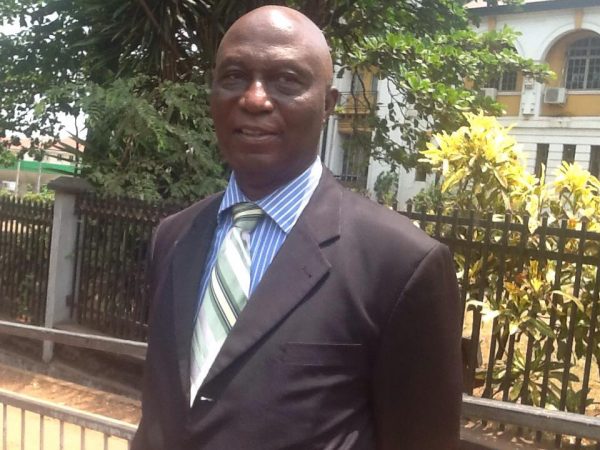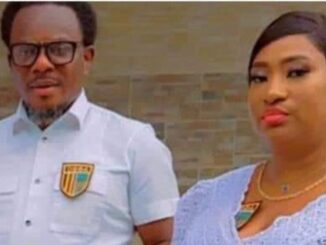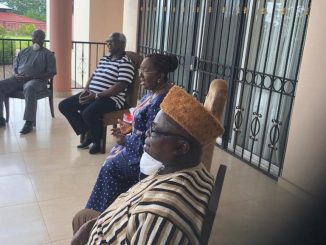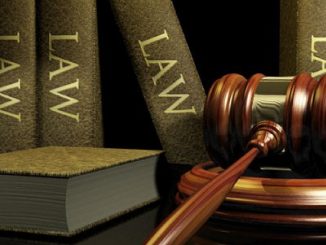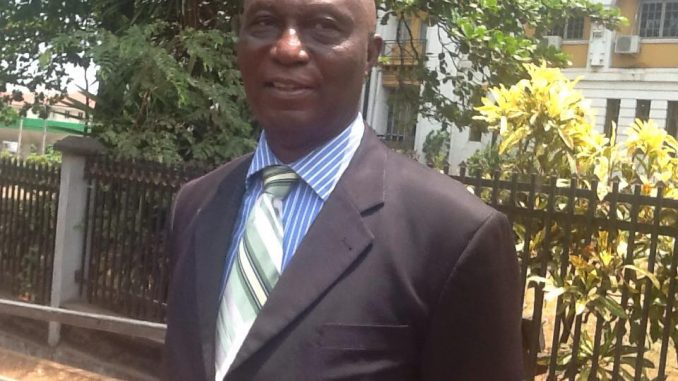
By Elias Bangura
Head of Law Department, Fourah Bay College, University of Sierra Leone – Emmanuel Ekundayo Constant Shears-Moses Esq – has recently stepped down after almost six years in the position.
Dr Dante Allie Bendu, Dean of Faculty of Social Science and Law, said on 2 June 2017 that the rotational policy for heads of departments of the University stipulates that occupants of the office should spend between two to three years per term, and based upon satisfactory performance, one would be honoured to serve a two term tenure.
“Mr Shears-Moses has served a two three-year term,” he said. “No one is usually allowed to serve beyond a two term limit. Some people serve for only a term, but based on his performance; he was allowed to serve for two terms, that is, for six years. The procedure for changing heads of departments is when your term is up they will serve the next person in the queue to take the position.”
Dr Bendu said there was no political influence in relieving Mr Shears-Moses, as is being rumoured.
“Even myself, I once served as head of department, and when my term was up I had to go even though I didn’t want to go at the time. Now listen, I was present when the Deputy Vice Chancellor of the University of Sierra Leone, Prof Gbamanja, admitted to three key lecturers at the Law Department – Justice Sengu Koroma, Mrs Melinda Davies, and Mr Roland Wright – that Mr Shears-Moses was not sacked. He was simply relieved of his position, because his two term tenure had ended,” said Dr Dante Bendu.
Head of Department
It was Prof Joko Smart, then as head of the Law Department, who brought in Mr Shears-Moses as a lecturer in 1996. Six years later in 2012, Mr Shears-Moses took over as Head of Department from Mr. Eke Halloway.
“When I came, I reorganized the syllabus,” he said. “I introduced several new elective modules including conflict of laws, arbitration law, labour and social security law, tax and revenue law, international human rights law, banking law, intellectual property, and legal research. This opened the door for more lecturers to come in, but salaries were a pittance so they were not interested, however they came in saying they wanted to help.
“I then reorganized the law society, so students can fully participate. I also instituted a yearly dinner instead of a party, among several other initiatives, including a law library, with books from outside, for which both students and lecturers were happy for.
“Of course intake into the Law Department increased but I was interested in quality, so I set new entry requirements with a 3 in English, and a 4 in other subjects. I kept to my standards and expected others in the University of Sierra Leone to keep to theirs too.
“Obviously, I became unpopular because of my stance but a good degree is always necessary – so that you can stand with other lawyers both in Sierra Leone and elsewhere,” he said.
University of London
Shears-Moses graduated from the University of London, and was called to the Bar in 1977. He returned home to serve the Sierra Leone Government, and was Magistrate for Bo and Pujehun Districts from 1979 – 1983. Then he entered private practice, and has been there ever since.
Sierra Leone Bar Association
For two years, Mr Shears-Moses headed the Sierra Leone Bar Association (1999-2001), where he had the opportunity to work with the Sierra Leone Association of Journalists (SLAJ), the Sierra Leone Medical and Dental Association, and they were able to galvanise and work towards peace, along with the UNDP and other entities.
“Together, we were all trying to get the country back to normal, after the brutal civil war,” he said. “Yes, at the time, we had a cordial working relationship with the government and they listened to us.”
Mr Shears-Moses said the Sierra Leone Bar Association called and advocated very strongly for a fair trial for the soldiers that initiated the 25 May 1997 Armed Forces Revolutionary Council (AFRC) coup.
“We called and asked for a fair trial for them, and indeed it was quite fair,” he said. “Apart of the 18 that were hung, those convicted by the high court had their sentences commuted, and the people walked out free – thanks to the cordial relationship that the SLBA had with the then Attorney General, Mr. Solomon Berewa.”
“Now, during my tenure as President of the Bar Association I was advocating for legal aid to be introduced into this country – thank God we have it today, although it has its challenges. Also, it was then we started looking for land for our secretariat. Another thing that we achieved was resuscitating the publishing of law reports and we laid the groundwork and we had one law report published later in 2007.”
He said they had a lot of support from the UNDP; and collaboration was established with the Nigerian and Ghanaian Bar Associations – visits and notes were shared and up till today this good cooperation continues.
“We had a good working relationship with civil society too, and we succeeded in getting a lot of successes on many issues.
“Another success during my tenure as the Bar Association president was our discussions and contributions towards the Sierra Leone Special Court. Of course we had laws that could cover all those indictments but they were however passed over, and a special Act was passed in 2000 that gave validity to the Court, which was a residual court for an emergency situation. The trials there were indeed fair,” said Mr Shesrs-Moses.
Sierra Leone Judiciary
He added that our justice system is slow, far slower now, although litigation has improved, and there’s an improvement and modernization of our rules of court.
“We have to reorganize the whole of the Registry, get more training for staff, and file management. Yes, our court infrastructure is far below expected standards; judges are inconvenient to a great extent. Right now, we need bigger and better office space, plus more qualified staff.
He admitted that people’s lack of confidence is due to the slowness of our judicial system, and that the Sierra Leone Bar Association is not helping the situation presently, as it is not so much into research – if it were, a lot of things will improve in the judicial process.
Supreme Court
Because of his commitment and service to the cause of Justice, Mr Shears-Moses was chosen in 2001 by the Government of Sierra Leone to head and lead the Shears-Moses Commission of Inquiry into the Affairs of the Central Prisons at Pademba Road in Freetown.
And in 2004, he was selected to go to the Supreme Court, but he turned the offer down because he didn’t want to leave the university just then, as he had a mind to help train law students and increase their numbers because Sierra Leone is in dire need of more lawyers.
Again in 2009, the Government of Sierra Leone chose him to head and lead the Shears-Moses Commission of Inquiry into the political fracas between the ruling All People Congress (APC), and the main opposition Sierra Leone People Party (SLPP) in Bo Town, southern Sierra Leone.
Today, many students, along with several lecturers he has brought on board to help augment the Law Department, bear testimony of Mr Shears-Moses’ invaluable output, and profess deeply of his father-figure stature and sense of discipline.
Israel Charley Williams, out-gone President of the Law Society, calls him a rare lecturer and leader, someone who is full of principles and integrity, the Lord Denning of Sierra Leone.
Mr Hannel Cole-Lewis, Admin Assistant, has this testimony of the man many people refer to as the Prophet Moses of the Law Department.
“He is a very disciplined person. I learnt a lot from him as an administrator. We all had our tough times with him, as he is always that corrective person. But I learned a lot from him. For me, I appreciate him greatly.”
That same appreciation also comes from the man who succeeded him as head of the law department – someone whom he brought in as a lecturer into the Department: Magistrate Dr Abubakarr Benneh Kamara.
“Mr Shears-Moses is my “Karmorkoh” or Rabbi,” he told the entire law society student body at the Strasser King Hall, following his acceptance of the offer to head the Law Department. “I want to build on his legacy.”
Retirement
After forty years as a lawyer, Mr Shears-Moses is still going strong, not to say sharp and more invaluable.
“Right now, I am thinking about my retirement, so I can have more time with my family. Of course, teaching will always be a part of my life. I still have a lot to give, you know – both to the university and to society at large.”

